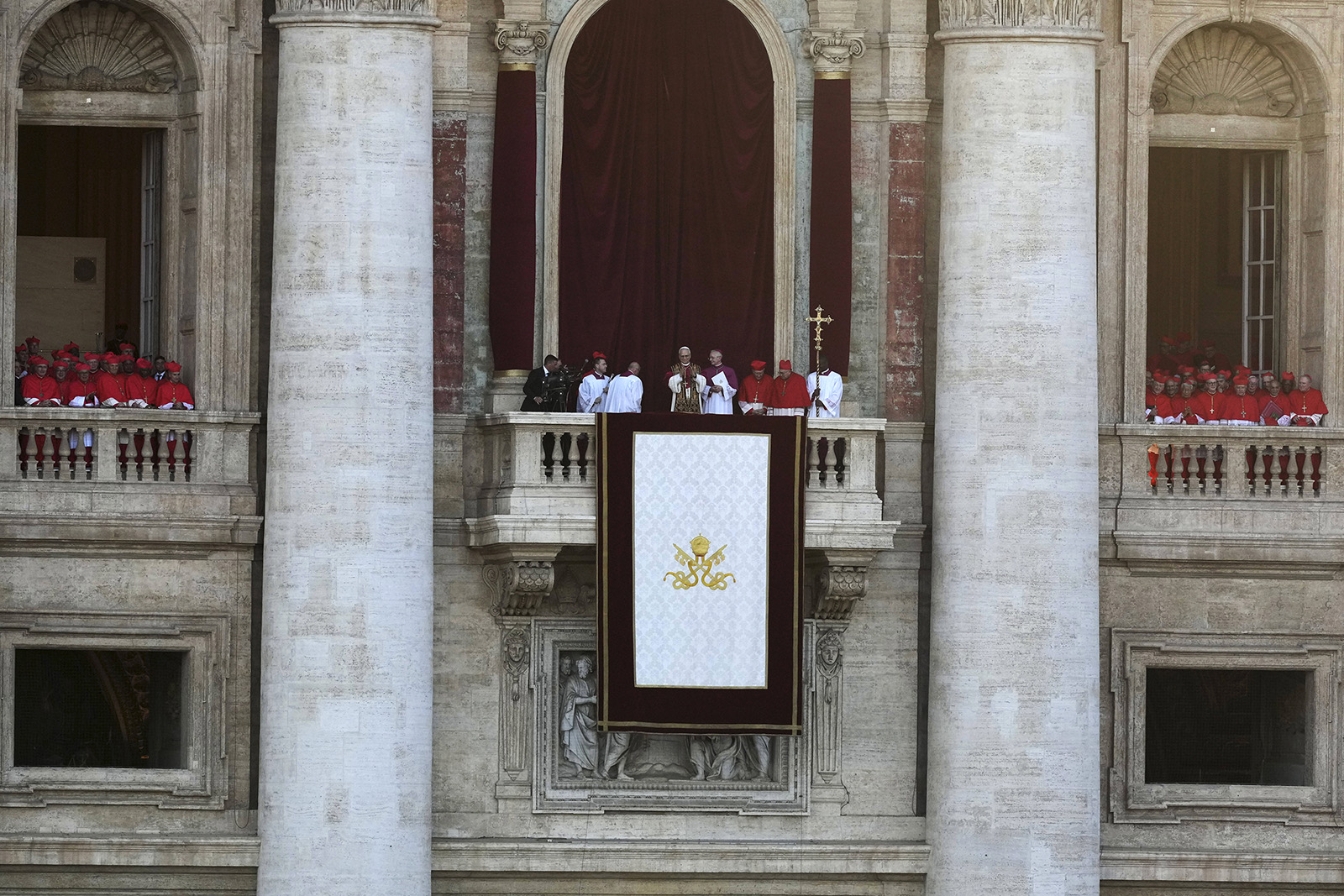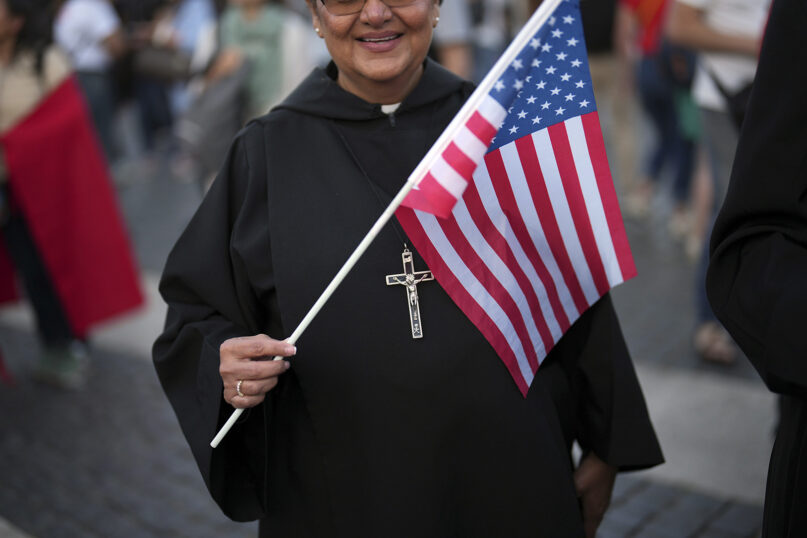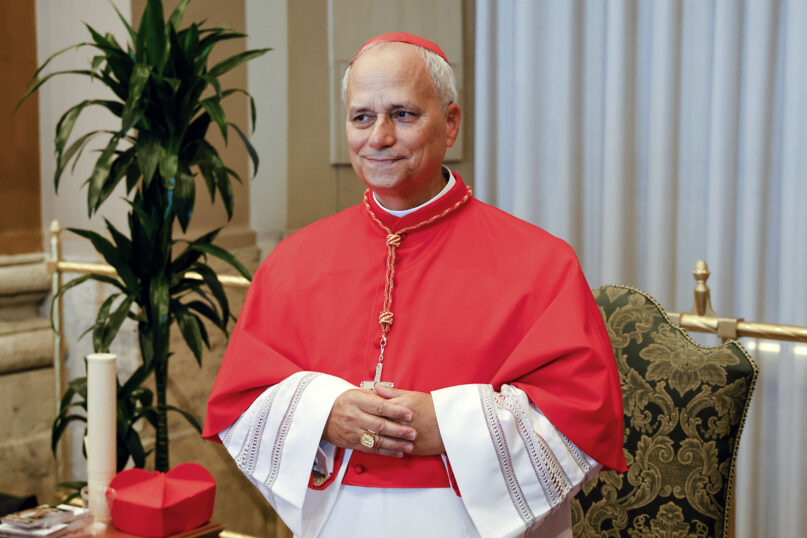
(RNS) — “Let me tell you something. I’m from Chicago. I don’t break.” — Barack Obama
Let me tell you something. I was born in Chicago’s suburbs and grew up just blocks from the city line, only a few south suburbs away from where Pope Leo XIV grew up. I attended high school and college in Chicago. I moved away for 25 years, but came back to work (by God’s own grace) on Chicago’s South Side in 2017 at the same institution where the new pope trained to be a priest. I am a Chicagoan and a Chicago Catholic down to my bones.
So, really, let me tell you something. We’re tough people. We endure frozen winters and soupy, humid summers. We endure all the “flyover country” jokes our good friends in the coastal cities tell. We endure the baseball teams and football teams and basketball teams and hockey teams that seem never (well, not since Air Jordan) to be on top. And yet, “Come show me another city with lifted head singing so proud to be alive and coarse and strong and cunning,” as Carl Sandburg wrote, around the time the pope was last named Leo. We don’t break.
But the election of Pope Leo IV nearly broke me.
For as long as I’ve been alive (and longer), conventional wisdom said what Chicago’s Cardinal Blase Cupich said just days ago: It would be “a stretch” for the next pope to come from the United States. There was no way. There was just no way.
But here we are. Not only is the new pope an American, but he knows the streets I know, the neighborhoods I know, the restaurants I know, the city I know. Reports are that, as a fellow Southsider, he shares my allegiance to the White Sox, who have won 51 games since 2023. When Barack Obama (a Southsider and Sox fan) was elected president, I thought we had reached the peak.

A nun holds a US flag during the speech of the newly elected Pope Leo XIV at the Vatican, Thursday, May 8, 2025. (AP Photo/Francisco Seco)
But wow.
What happened at this all-but-historically short conclave was nothing short of remarkable. It may define the rest of my professional life. But no matter what it means for me, it’s also going to mean something for the whole Catholic Church and the whole world.
I write these words barely two hours after Leo appeared on the balcony of St. Peter’s, and there is a lot we do not know yet. But for now, at least, a few things are plainly obvious.
First, this brisk conclave signals how strong the desire among the cardinal electors was to maintain continuity with the Francis papacy. Many cardinal electors gathered at the Synod on Synodality’s monthlong meetings in October 2023 and October 2024 and had time to get to know each other and to reckon who they wanted to be the next pope. It seems clear that they decided that they want someone who will not look backward, and that they found him today in Leo, who named synodality, dialogue and building bridges.
The Catholic Church is not going back. At 69 years old, the youngest pope elected since John Paul II, Leo may be pope well into the middle of the 21st century ,or past it. The cardinals have sent a strong signal that they mean to cement Francis’ legacy.
Then there is the name. Pope John XXIII convoked Vatican II. Pope Paul VI continued and finished it. Pope John Paul I took both names to signal his intention to continue the reforms of Vatican II, and a month later John Paul II felt obligated to make the same gesture. Pope Benedict XVI seemed to signal a reversal, a pre-Vatican II name that indicated a papacy that would be more cautious.
Francis was something else altogether, a name no other pope had taken. By taking the name Leo, this new pope sends a very clever signal. The name last belonged to Leo XIII, who long preceded the fights over Vatican II and the culture war divisions that have plagued the Catholic Church since. But Leo XIII was also the first modern pope. He wrote about the problems of people living in the Industrial Age and defended the rights of workers against the greed of owners.
Leo XIII gave us the first glimpses of how the Catholic Church faces the modern world. All that has followed was built on his work. This new Leo seems to say, “The arguments of the 20th century are over. Let’s move forward, let’s keep going, let’s believe in the gospel well enough to build a just and peaceful world.”

FILE – Cardinal Robert Francis Prevost, prefect of the Dicastery for Bishops, stands for a portrait at the end of the consistory where Pope Francis elevated 21 new cardinals in St. Peter’s Square at the Vatican, Sept. 30, 2023. (AP Photo/Riccardo De Luca, File)
Lastly, there is the fact that Leo was born in the United States. He spent most of his ministry in Peru, but he is an American (and a Chicagoan) as much as I am. We should ask what was at work in this papal election that once seemed so unthinkable.
The cardinal electors always bring world events with them into the conclave. The diplomats Benedict XV and Pius XII were elected to navigate two closely linked world wars. Paul VI was elected to bring peace after the Cuban missile crisis. John Paul II was the pope the cardinals aimed at the Cold War.
What does it mean for the cardinals to have elected a U.S.-born pope during the second Trump administration as the global order, once guaranteed by U.S. economic and military power, crumbles and authoritarianism creeps ever more toward being the political default? The Catholic Church has taken a side, it seems, to oppose this threat.
My thoughts here are quick impressions, written before the wisps of white smoke have fully dispersed from the Roman air. The coming days, weeks, months and years will fill in the picture. But today we have to say that something remarkable has happened. The Roman Catholic Church has waded fully now into the 21st century as a church committed in a new way to what Vatican II promised and what Francis modeled.
In this new era, there can’t be any credible arguments anymore about taking the church back to before Vatican II. The Catholic Church stands poised to defend the sacred rights of every human person, Catholic or Christian or neither. It will do so in a way that bears witness to how inevitably “We are all united in the hands of God. … [U]nited, hand in hand with God and among ourselves.”
As Catholics, our arms will be wide open to the world. We will accompany the world. We will live in the world.
(Steven P. Millies is professor of public theology and director of the Bernardin Center at Catholic Theological Union. The views expressed in this commentary do not necessarily reflect those of Religion News Service.)
